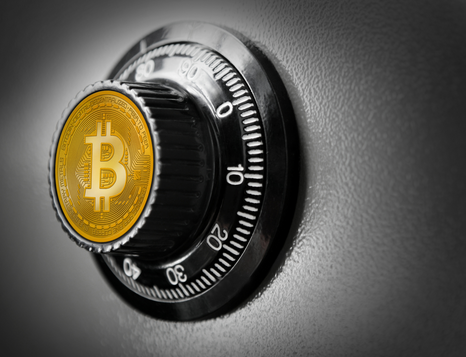The cryptocurrency trading industry isn’t the safest place if you aren’t careful but there are a few ways for securing your cryptocurrencies to the best of your ability, here Iggy Vargas from Paxful explores these methods
There are people that don’t have the best of intentions and if you aren’t cautious in the trade area, you might just get your funds stolen from you. I’m not saying any of this to scare you… well, maybe a little bit. Only a little bit because there are real risks out there and as a fellow cryptocurrency enthusiast, I want everybody to be safe.
The importance of a wallet
It should be general knowledge by now that cryptocurrency wallets are the bedrock of keeping your crypto safe. If you’re trading bitcoin, of course, you’ll want a secure bitcoin wallet. The problem is that there are so many different kinds of wallets that it becomes confusing to people, especially people who are new to the cryptocurrency industry.
Not everyone knows this, but there are specific wallets for specific trading styles. There are two main types of wallet—hot wallets and cold wallets. Hot wallets are wallets that are always connected to the internet. Although some cold wallets have the ability to connect to the web, they mostly remain offline. Although there are no rules that say that you have to use a specific type of wallet, these types of wallets are definitely recommended for their specific uses:
- Hardware wallet – Hardware wallets are cold wallets that include an actual physical device. It looks like a USB with a small OLED screen and side buttons to help you navigate through the device. They’ll usually set you back a bit of money ($70-$150 USD) but they’re arguably the most secure kind of wallet. This makes it ideal for people who are holding a significant amount of crypto.
- Paper wallet – Paper wallets, cold wallets, are literal pieces of paper that hold your public address and private keys. They’re a cheaper alternative for hardware wallets but they come at a different cost. With paper wallets, you cannot withdraw a fraction of your funds—it’s either you withdraw everything or don’t withdraw at all. This makes it ideal for people who are planning to HODL a certain amount of crypto for a certain period of time.
- Desktop wallet – These hot wallets are applications that are downloaded and installed on your personal computer or laptop. They’re available for all operating systems—making it ideal for people who are always on their laptops/computers.
- Web wallets – Web wallets are hot wallets that are accessed via web browsers. In most cases, you’ll be able to get a free web wallet by creating an account on a cryptocurrency exchange. These wallets are perfect for newbies who are just starting out or people who want to test out a new exchange—ideal for holding small amounts of cryptocurrency.
- Mobile wallets – Mobile wallets are hot wallets that are downloadable applications for your smartphone. These wallets are ideal for people who are always on-the-go or people who regularly pay for things with crypto.
Things to keep in mind
Along with the type of wallet you’re using, there are some general pointers that you could follow to make your trading experience safer and more secure. Here are a few tips you can follow to make trading on exchanges safer:
- Keep your password strong – The first step to securing your account is to have a strong password. Use capital letters, numbers, and symbols if you can. Also, make sure that you use different passwords for all your accounts so that if a hacker were to gain access to your emails, he/she wouldn’t get access to any of your other accounts as well.
- Enable 2FA – 2-Factor-Authentication is a way for people to add an extra layer of security to their accounts. By enabling this, you’ll have to verify yourself by confirming a text message or email.
- Verification – If there’s an option to verify your account, you should do it. By verifying your identity on exchanges, you’ll not only be safer trading, but exchanges willl also offer exclusive perks.
- Don’t give out any personal information – Giving out personal information on cryptocurrency exchanges is a big no-no. By giving any personal information out, you allow hackers to get even closer to gaining access to your code. Only give what’s absolutely
Be wary
It’s very important to always be cautious while trading on cryptocurrency exchanges. Be cautious on what you invest in (make sure to do your research) and who you’re trading with (try to spot any potential red flags—in this case, it’s okay to nitpick). If you keep these in mind, securing your crytpocurrencies should be a piece of cake.
If you’ve done enough research (both about the crypto and the platform you’re using) and you’re cautious about the way you trade, you should have nothing to worry about.
Read more at: https://www.openaccessgovernment.org/securing-your-cryptocurrencies/70086/







